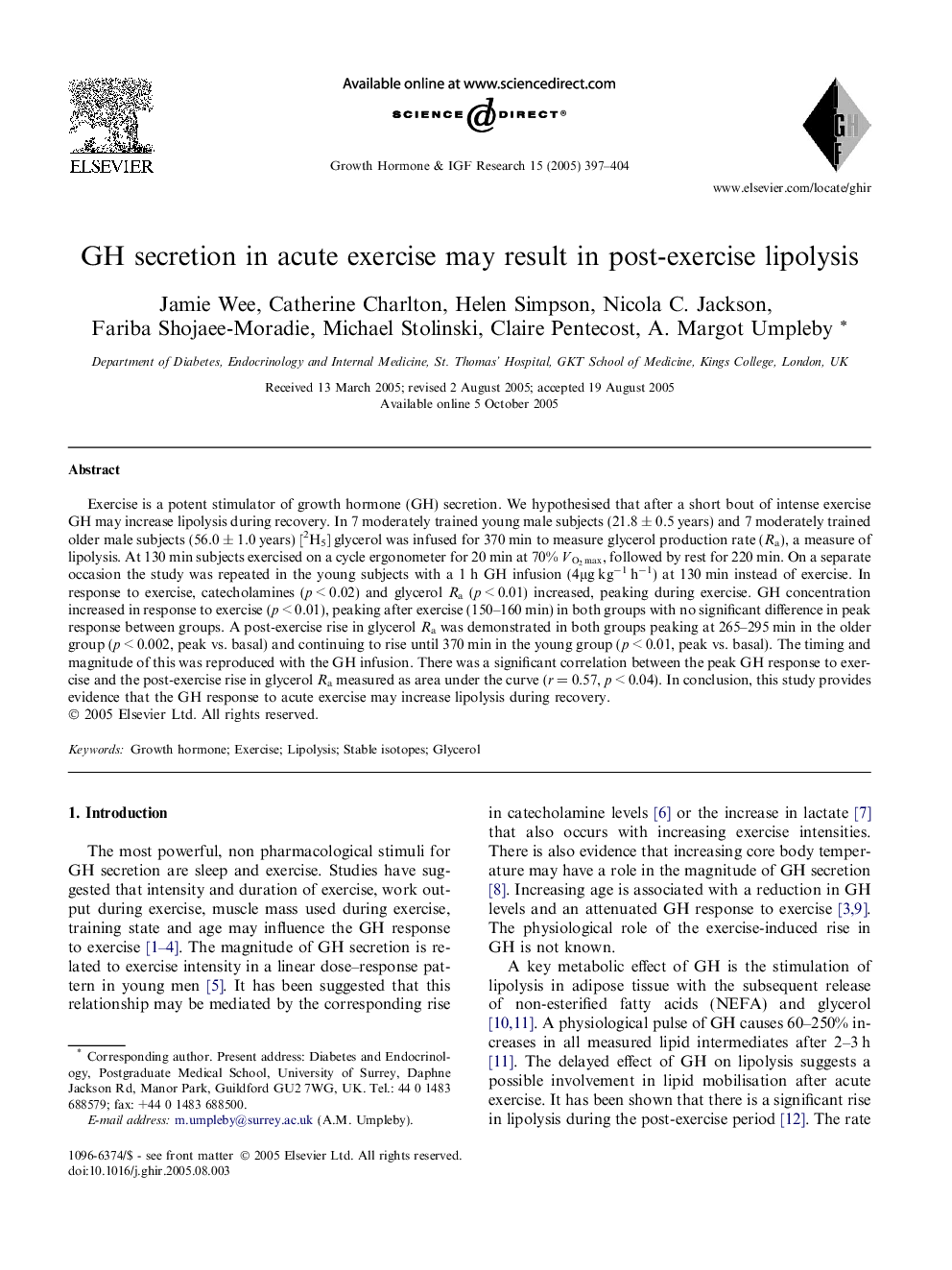| Article ID | Journal | Published Year | Pages | File Type |
|---|---|---|---|---|
| 9114764 | Growth Hormone & IGF Research | 2005 | 8 Pages |
Abstract
Exercise is a potent stimulator of growth hormone (GH) secretion. We hypothesised that after a short bout of intense exercise GH may increase lipolysis during recovery. In 7 moderately trained young male subjects (21.8 ± 0.5 years) and 7 moderately trained older male subjects (56.0 ± 1.0 years) [2H5] glycerol was infused for 370 min to measure glycerol production rate (Ra), a measure of lipolysis. At 130 min subjects exercised on a cycle ergonometer for 20 min at 70% VO2max, followed by rest for 220 min. On a separate occasion the study was repeated in the young subjects with a 1 h GH infusion (4μg kgâ1 hâ1) at 130 min instead of exercise. In response to exercise, catecholamines (p < 0.02) and glycerol Ra (p < 0.01) increased, peaking during exercise. GH concentration increased in response to exercise (p < 0.01), peaking after exercise (150-160 min) in both groups with no significant difference in peak response between groups. A post-exercise rise in glycerol Ra was demonstrated in both groups peaking at 265-295 min in the older group (p < 0.002, peak vs. basal) and continuing to rise until 370 min in the young group (p < 0.01, peak vs. basal). The timing and magnitude of this was reproduced with the GH infusion. There was a significant correlation between the peak GH response to exercise and the post-exercise rise in glycerol Ra measured as area under the curve (r = 0.57, p < 0.04). In conclusion, this study provides evidence that the GH response to acute exercise may increase lipolysis during recovery.
Related Topics
Life Sciences
Biochemistry, Genetics and Molecular Biology
Endocrinology
Authors
Jamie Wee, Catherine Charlton, Helen Simpson, Nicola C. Jackson, Fariba Shojaee-Moradie, Michael Stolinski, Claire Pentecost, A. Margot Umpleby,
